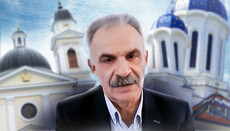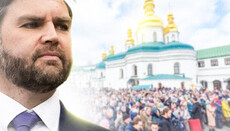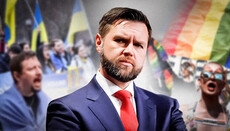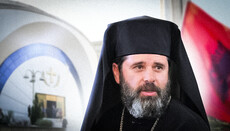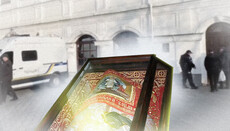Schism or autocephaly: What is the ROC Council preparing for the UOC?
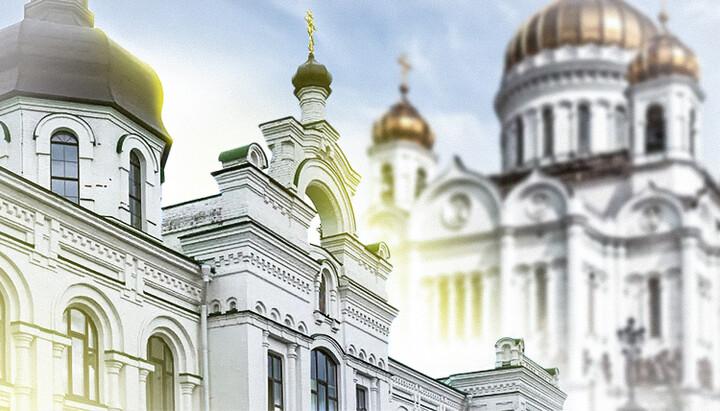
A сonference of the ROC bishops will take place in Moscow, which will consider the UOC issue. What can be expected from the decisions made at this meeting?
On July 19, 2023, the Bishops’ Council of the Russian Orthodox Church, officially referred to as the "Bishops’ Сonference," is scheduled to be held on the premises of the Holy Trinity St. Sergius Lavra. The meeting is dedicated to the commemoration day of St. Sergius of Radonezh. What issues will be discussed during this meeting, and will they be related to the Ukrainian Orthodox Church?
2015 Council and 2017 Synod
Before we delve into the possible scenarios of decisions at the Bishops’ Conference at the Trinity-Sergius Lavra, it is worth recalling the last decisions of the ROC bishops regarding Ukraine.
At the Bishops’ Council of the Russian Orthodox Church, which took place in 2015, 259 hierarchs out of 342 participated. Naturally, the Council addressed the war in Ukraine and the situation of the UOC in its resolutions. In the final document, the ROC bishops wrote that they "pray to God to bestow a just peace on the land of Ukraine, to stop the tragic bloodshed, to protect it from further sorrows, and to bring those who hate each other to repentance and mutual forgiveness".
The council participants also decided to "unanimously express their support to His Beatitude Metropolitan Onuphry of Kyiv and All Ukraine and the episcopate of the Ukrainian Orthodox Church in their efforts to preserve church unity and overcome divisions".
The third point in the document called for "prayers for peace and providing possible assistance to the innocent victims of the armed conflict".
In the fourth point, related to Ukraine, the participants of the Council urged "all those who have the opportunity to make immediate efforts to stop the bloodshed, which claims human lives."
As we can see, the Russian Church's position towards Ukraine was impeccable eight years ago – support for the UOC, prayers for a just peace, and a call to stop the violence.
In 2017, the Bishops’ Council of the ROC was held. Did the position of the Russian Church change over these two years?
No, it didn’t. Like two years before, the Council called on the "world community to contribute to the restoration of a strong and just peace on the land of Ukraine".
The Council also approved the "efforts of His Holiness Patriarch Kirill of Moscow and All Russia and His Beatitude Metropolitan Onuphry of Kyiv and All Ukraine for the release of prisoners of war".
At the same time, the Council expressed gratitude to Metropolitan Onuphry "for his efforts to restore social unity in the country" and "for his peacekeeping efforts".
But most importantly, "the Council made amendments to the Statute of the Russian Orthodox Church, emphasizing the special status of the Ukrainian Orthodox Church, whose governing centre is located in Kyiv".
However, today, all Russian critics of the UOC seem to forget about this "governing centre in Kyiv".
Thus, in the last two Councils, which took place in the context of military actions in Eastern Ukraine, decisions were made concerning the peaceful resolution of the conflict and emphasized the administrative independence of our Church. Will this position change now?
Who is "for" and "against" the UOC within the ROC?
Within the Russian Orthodox Church at the moment, there are at least three groups, each holding its own view on the "Ukrainian issue".
The first group consists of "radicals" who view the Ukrainian Orthodox Church as a de facto schismatic group. The most prominent representative of this group is Metropolitan Leonid (Gorbachev). His statements evoke the most confusion and disapproval both among the UOC bishops and ordinary believers. He even promised that all bishops supporting the decisions of the UOC Council in Feofaniya (which is almost all of them) would be expelled from Ukraine by Russian forces. The representatives of the "radical" group are highly active in the media, and their viewpoint seems to prevail in public discourse. However, this viewpoint is far from prevailing among the ROC bishops.
The second group is called "autocephalists". Surprisingly, within the Russian Church, there are quite many bishops who believe that the UOC should be granted autocephaly. Their logic is simple: the Ukrainian Orthodox Church is irreversibly "lost" for the ROC, and continuing to hold on to it is neither beneficial nor conducive to the ROC's status in world Orthodoxy. There is information that even Patriarch Kirill is associated with this group. We do not know how true this is, but it is rumoured that the Patriarch was ready to grant autocephaly to the UOC as early as March 2022. Although he was dissuaded at the time, he has not completely abandoned the idea. The reasons behind such a position are discussed below.
The third group can be referred to as "neutral." Its representatives believe that no sudden moves should be made, and the best tactic is to wait and observe. In other words, they argue that decisions should be made once the war ends or when it becomes clear how it will conclude. Only then should any decisions be taken. It is worth noting that the majority of the bishops in the ROC belong to this group, and it is their position that will most likely be reflected in the final document of the Bishops’ Council of the ROC.
A schism or... a crack?
At this point, it is both inconvenient and wrong for the Russian Orthodox Church to announce the schism of the UOC.
It is inconvenient because the whole world is closely watching what is happening in the ecclesiastical field of Ukraine: canonical Church temples are being raided through overt violence, several hierarchs are under house arrest, Metropolitan Pavel is in detention, and there is a high probability of the Church being expelled from the Kyiv-Pechersk Lavra. Declaring a schism of the UOC in this situation would, firstly, "finish" the UOC and, secondly, hit its own image and status, not to mention the evangelical aspect of such a declaration.
Moreover, despite all the accusations against the UOC, it has not violated any canons at the moment. The declaration of independence is not the same as declaring autocephaly. It is merely a statement of fact, which, it is worth noting, was also accepted by the ROC Council in 2017. Neither the chrism-making nor the practice of not mentioning the patriarch's name in worship constitutes a violation of canons. Therefore, declaring a schism of the UOC can only be done if there is a desire to:
- play into the hands of the Ukrainian authorities in destroying the UOC;
- to push some of the hierarchs and priests of the UOC into the arms of the Phanar;
- to push some of the UOC bishops and clergy to "unite" with the OCU, thus proving the rightness of the Phanar, which formally granted the Tomos to Ukraine.
It is clear that all this will hit the ROC so hard that it will be able to forget about any significant role in world Orthodoxy for decades. Therefore, we do not know why the "radical party" needs to announce the schism of the UOC, but we know for sure that Patriarch Kirill and the party of "neutral" bishops do not need it.
So, the ROC bishops can talk about the crack, but they will not talk about the schism. Is there a possibility that they will raise the issue of granting autocephaly to the UOC?
Tomos for the UOC
Hypothetically, the decision to grant autocephaly to the UOC is possible. We are confident that this issue will definitely be discussed at the meeting. As we have mentioned before, there are enough bishops in the ROC who believe that it is time to "release" the Ukrainian Orthodox Church. The logic behind such a decision is very simple, and its consequences are highly beneficial for the Russian Church. Let's consider them.
- Granting the Tomos to the UOC will provide our Church with an argument that no official involved in the persecutions can refute. If the persecutions against the UOC continue after receiving the Tomos, even the most stubborn opponent of our Church will understand that they are persecuting it not for its "ties to Moscow" but for Christ.
- Granting the Tomos will relieve tensions between the UOC and the ROC.
- Patriarch Kirill will go down in history not as the man who lost Ukraine and the UOC, but as the Primate who granted church independence to a multi-million-member Church.
- The Tomos for the UOC will significantly undermine the plans of the Phanar in Ukraine. If our Church receives canonical autocephaly, the Phanar, though it may not agree with it, will not be able to claim the non-canonical jurisdictional status of the UOC clergy.
- The Tomos for the UOC will weaken the already unreliable positions of the OCU in Ukraine. If ordinary believers are hesitant to follow Dumenko, despite the intense media support, they will be even less likely to do so if the Ukrainian Church emerges as an exemplary canonical and jurisdictional entity.
- Several Local Orthodox Churches will recognize the Tomos for the UOC. We can even guess which some of the recognising Churches will be. Even those who might not openly recognise it at first will eventually do so in the context of worship and Eucharistic relations. That means they will not refuse to concelebrate with the UOC bishops and clergy. Moreover, even within the Greek Churches, there will be dozens of bishops who will defend the canonical status of the UOC's autocephaly. The Serbian Church, which granted autocephaly to the North Macedonian Church, serves as an example in this case.
This is a historic decision, and we hope that sooner or later it will be made regarding the UOC.
However, it is unlikely to happen on July 19. Most likely, Patriarch Kirill will try to assess the attitudes of the bishops (which is probably why all bishops residing in Russia must participate in the meeting; attendance was "optional" at the previous meeting) and anticipate their reactions to different decisions.
Likewise, we believe there will be no sharp statements about a "schism" of the UOC. There may be calls to maintain the canonical order and warnings about the dangers of the "chosen path". Ultimately, as we believe, the "neutral party's" "wait-and-see" position will prevail. Well, we will wait too, especially since the wait is not long now.
